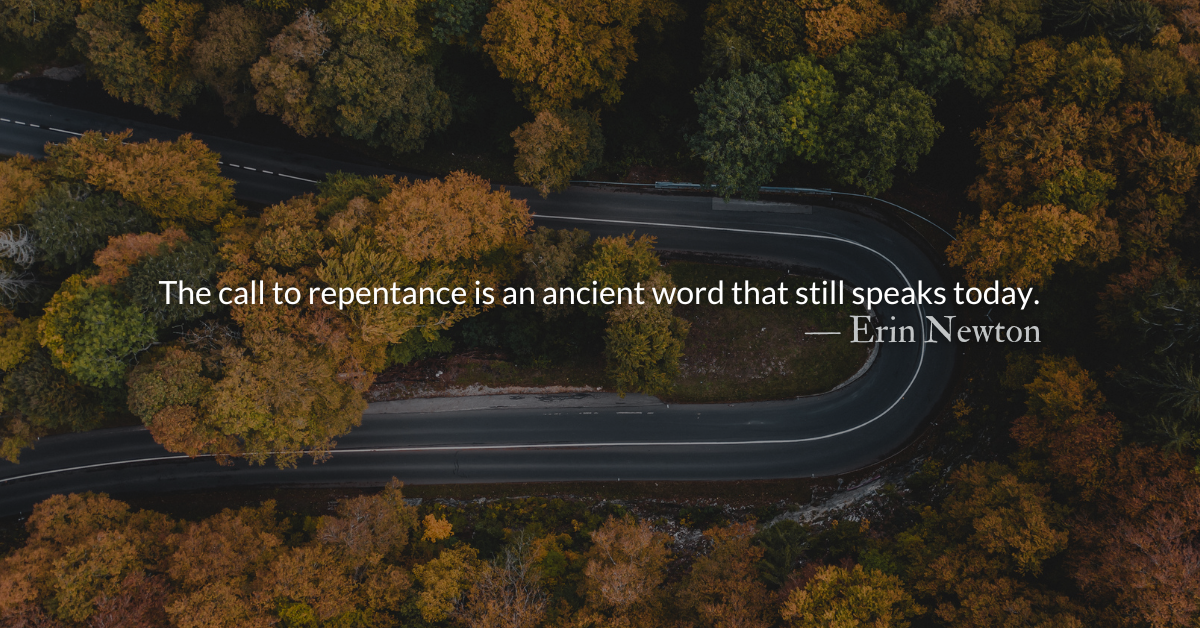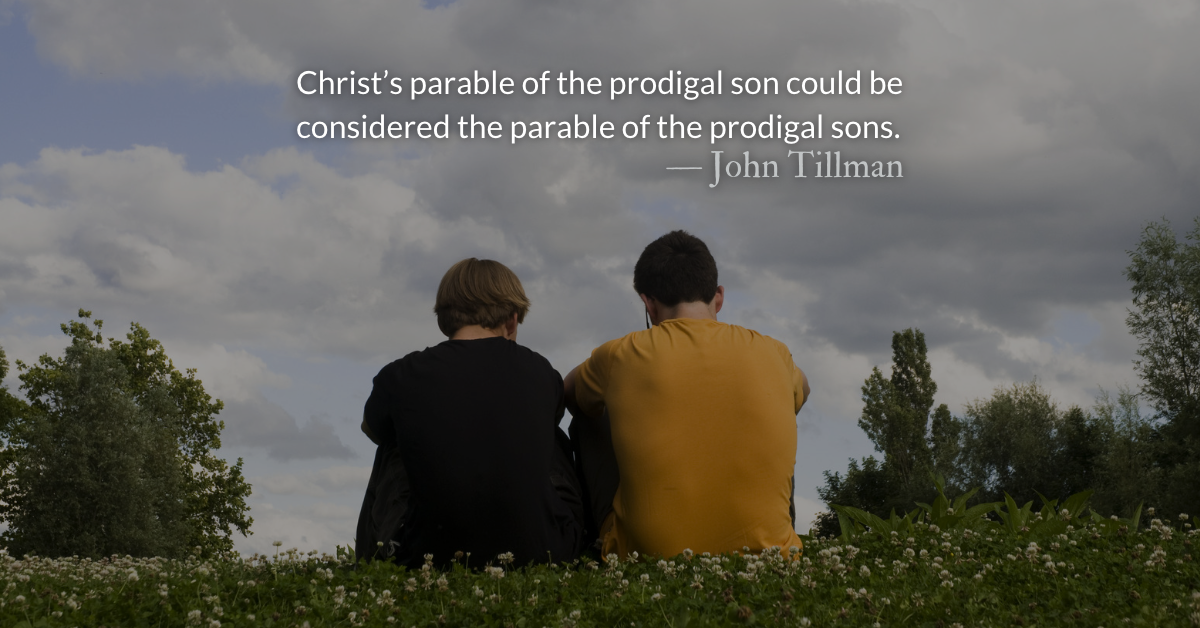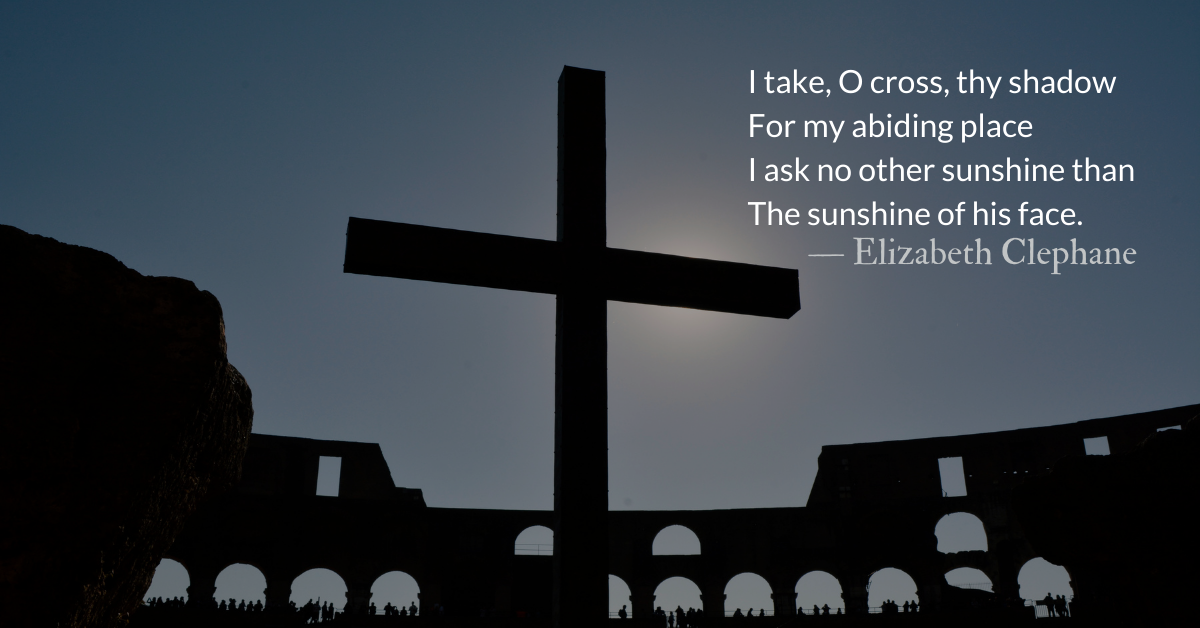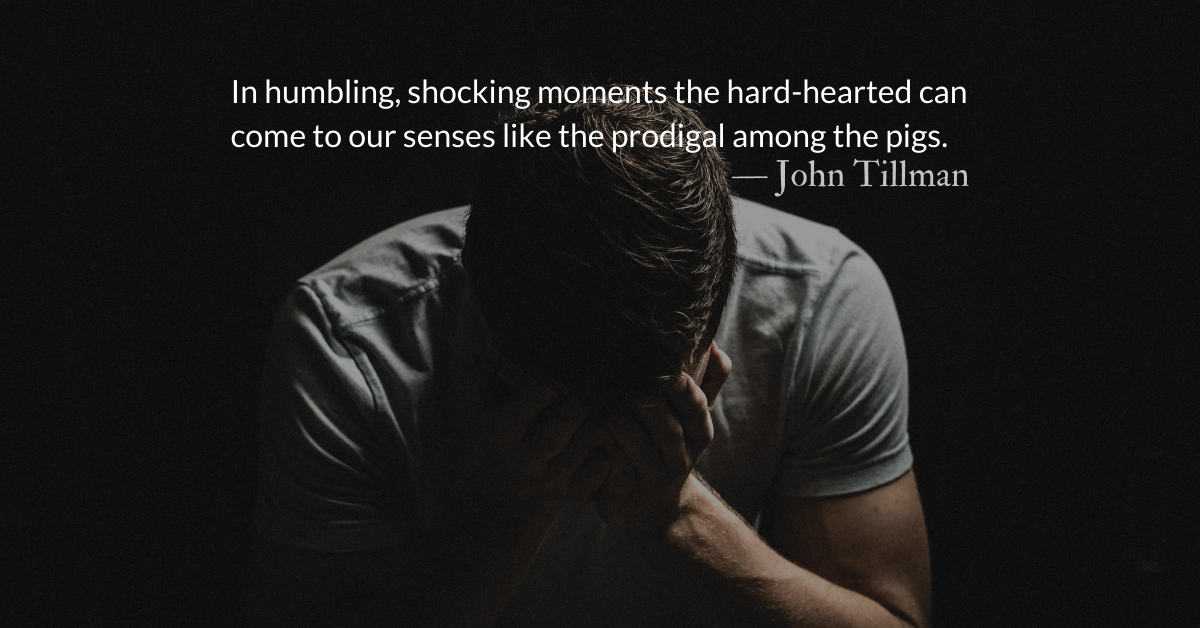Scripture Focus: Luke 15.17-20
17 “When he came to his senses, he said, ‘How many of my father’s hired servants have food to spare, and here I am starving to death! 18 I will set out and go back to my father and say to him: Father, I have sinned against heaven and against you. 19 I am no longer worthy to be called your son; make me like one of your hired servants.’ 20 So he got up and went to his father.
Reflection: The Far Country and the Father’s Field
By John Tillman
What is the purpose of the trio of “lost things” parables—especially the third and longest in the series, The Lost Son? Why did Jesus tell these stories?
Some interpreters focus on the prodigal’s sins and poor decisions, making the story a preventative tale to scare prodigals straight. Was Jesus trying to scold or scare prodigals?
From medieval morality plays to modern “Hell Houses,” scaring prodigals straight has a poor history of long-term success in either evangelism or discipleship. It doesn’t do much to cultivate a growing, vibrant, and enduring faith, and it doesn’t seem to have been Jesus’ goal.
Jesus told many stories about punishments in this life and the next. (Matthew 18.6-9, 24.48-55, 25.26-30, 25.41-45; Luke 16.19-31) However, the “sinners” these tales aim to “scare straight” are the wealthy, who fail to be generous, and the powerful, who fail to help the weak.
These three stories answered an accusation. Religious leaders muttered, “This man welcomes sinners and eats with them.” (Luke 15.1-2) They were suspicious of the crowds Jesus attracted and of Jesus by association. “There must be something wrong with his teaching if he spends time with those people!”
The “Lost Things Trilogy” has two simultaneous audiences: the “sinners” and the “righteous.” Jesus extends his hands to both groups, focusing on welcoming rather than warning. To the sinners, these stories say, “You are valued, and God ‘celebrates you home,’ no matter where you’ve been or what you’ve done.” To the “righteous,” they demonstrate God’s heart for the lost and they call them to join the celebration.
One group is the brother lost in the far country. The other is the brother lost in his father’s field, refusing to enter his father’s happiness. Both brothers have a distance to cross to come home. The brother lost in hedonism in the far country, makes it home to the father’s embrace ahead of the brother lost in jealousy in his father’s field. (Luke 15.28-30)
We all may be or become one or the other of these brothers. We may become lost in a far country or our father’s field. Whatever lures you away, whether the pleasures of wickedness or the pleasures of self-righteousness, let them go and come home. We have things to repent of, things to leave behind, and things waiting for us in the arms of a loving father.
Come home to the father, whether you are lost in the field or the far country. Come home and celebrate.
Divine Hours Prayer: The Request for Presence
I have said to the Lord, “You are my God; listen, O Lord, to my supplication.” — Psalm 140.6
– From The Divine Hours: Prayers for Summertime by Phyllis Tickle.
Today’s Readings
Zechariah 6 (Listen 2:08)
Luke 15 (Listen 4:19)
This Weekend’s Readings
Zechariah 7 (Listen 1:57), Luke 16 (Listen 4:27)
Zechariah 8 (Listen 3:33), Luke 17 (Listen 4:22)
Read more about Prayer for Older Brothers
One son refused to stay in the home due to sinful rebellion.
One son refused to enter the home due to sinful unforgiveness.
Apply or tell a student!
Our last openings are filling up. #StudentWritersMonth orientation is coming soon! #FreeCoaching, seminars by special guests, published work, and a scholarship/stipend.











